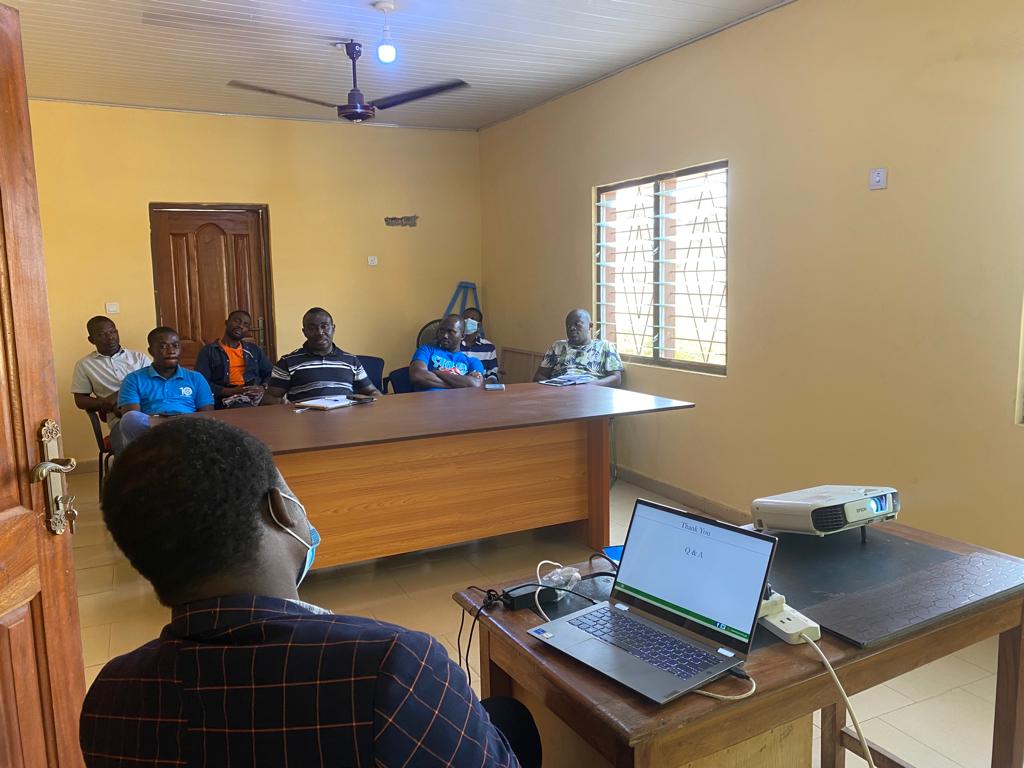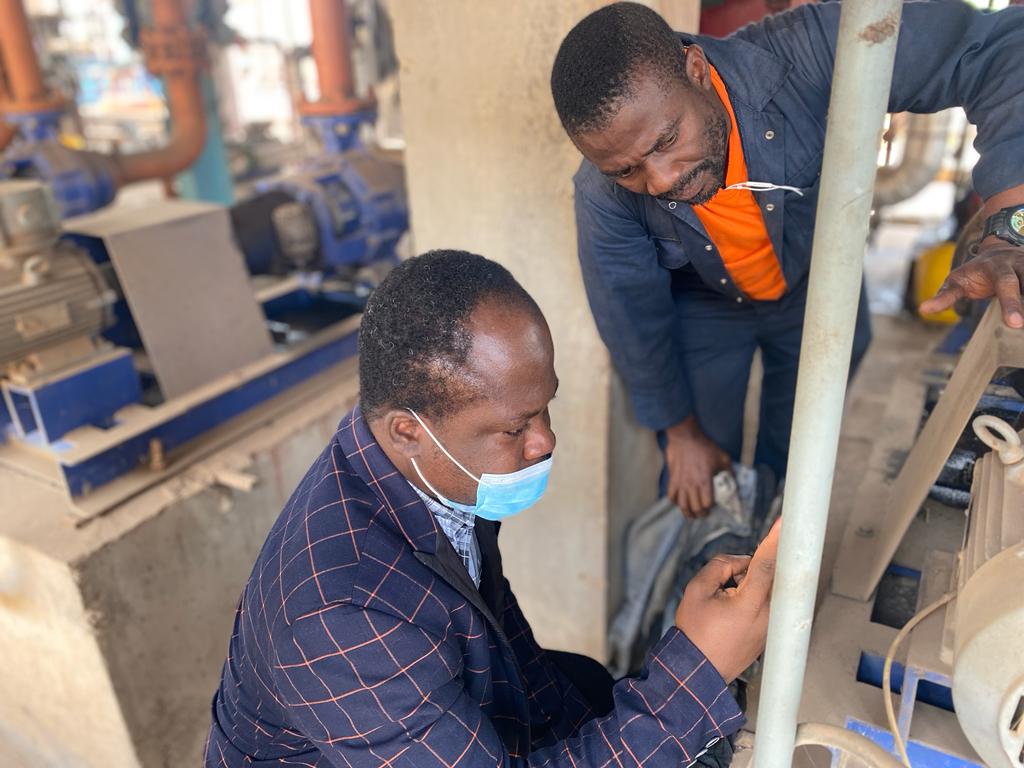KEEP NEWS
KEEP PRESENTS FINAL ENERGY AUDIT REPORT TO VESTER OIL MILLS LIMITED, KUMASI
Published: 25 Jan 2022

Dr. Richard Opoku (in the middle) with Mr. Kwasi Nyamekye (third from left) and team at Vester Oil Mills Limited, Kumasi.
The Government of Ghana, as part of its Nationally Determined Contributions (NDCs) towards climate change mitigation and adaptation has set target to increase energy efficiency in the industrial sector by 20% by the year 2030. The 20% target is also to increase productivity and achieve improved energy intensities and economic development in the sector. Recognising the need to support industries to achieve this national agenda, the KNUST College of Engineering KEEP programme has initiated activities with industries in Ghana regarding energy audit services. The technical team therefore conducted investment grade energy audit in 2021 at Vester Oil Mills Limited to ascertain their energy efficiency situation and propose measures to reduce their energy consumption and cost. The technical team has presented their report to management of the company.
The Investment Grade Energy Audit meeting with Vester Oil Mills (processor of soya bean seeds into oil) was led by Dr. Richard Opoku, a certified Sustainable Energy Management Professional from the College of Engineering, KNUST on 20th January 2022 at Vester Oil Mills, Kumasi.
The meeting was held to discuss the outcome of the energy audit conducted at Vester Oil Mills, to share observations and recommendations with the facility and to roll out Energy Performance Improvement Action Plans (EPIAPs).
The main energy supply to the facility is electricity and biomass fuel (wood fuel and palm kernel shells). The presentation highlighted the electrical energy consumption (kWh) of the facility and the cost implications in relation to the audit.
Based on the observations made from the energy audit, Energy Performance Improvement Action Plans (EPIAPs) were recommended as underlisted below:
- Installation of economiser to recover waste heat from the flue gas from the boiler plant.
- Installation of boiler automation system (Oxygen Trimming/Excess Air Control).
- Installation of solar water heating system to preheat the feed water.
- Replacement of damaged insulation on steam distribution pipes.
- Replacement of old inefficient motors with energy efficient motors with variable speed drives.
- Installation of solar PV panels to generate power as alternative power supply.
The Manager of Vester Oil Mills, Mr. Kwasi Nyamekye, said as part of the initial report the KEEP team sent to them in 2021, the company has installed a 100 kWp solar PV already and intends to add more to achieve near 100% solar energy supply to the company.
After further discussions, it was agreed that, there is a high prospect for solar PV electricity generation and the need to develop an in-house Energy Management System (EMS) to measure and monitor energy supply and demand. The EMS will help to eliminate energy wastage in the company.



